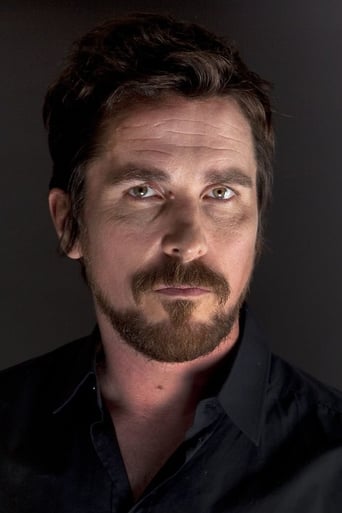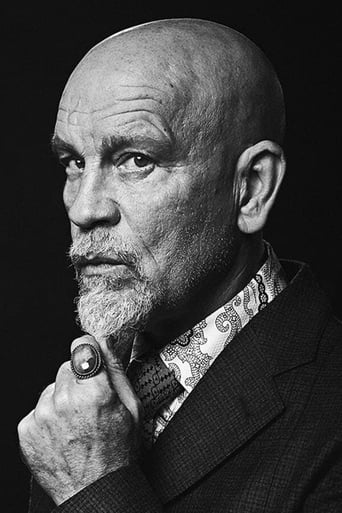Keeley Coleman
The thing I enjoyed most about the film is the fact that it doesn't shy away from being a super-sized-cliche;
Quiet Muffin
This movie tries so hard to be funny, yet it falls flat every time. Just another example of recycled ideas repackaged with women in an attempt to appeal to a certain audience.
Juana
what a terribly boring film. I'm sorry but this is absolutely not deserving of best picture and will be forgotten quickly. Entertaining and engaging cinema? No. Nothing performances with flat faces and mistaking silence for subtlety.
aziz-tarak
When a prisoner boy salute his enemy aircraft pilot ,Even Kamikaze . Its his love for the man who fly in the sky , respect for the soldier who is fighting even when they are his captor . He Do not understand war , His innocence question the harsh reality of war , and his hope for a better tomorrow . Even when sun flashes in the sky , he wanna bring back life to someone . Steven Spielberg work with young christian Bell is amazing , Bells performance beyond expectation . at THE end Its the Sun what flashes in the sky of the Empire of the Sun . A Story of War , Respect and Hope .
Kirpianuscus
at first sigh, a film about survive. or about the war. or a film about early maturation.in fact, only a masterpiece. and, like each masterpiece, out of any explanation. because not exactly the great performances or the realistic atmosphere, the genius of Spielberg or the spirit of novel , the few memorable scenes or the dramatic end are essential but he state of viewer after its end. it is one of films who transforms the war in the next event from you because it gives the precious possibility to discover it inside. like a sort of experience. out of comfortable clichés. like a form of escape from yours circle. because the idea to lose everything , to suffer, to do anything only for survive, to depend by the other become more than a hypothesis after you see this film.
jacklyn_lo
Main protagonist is a high-society British boy dropped into the harsh environment of Shanghai during WW2 and has to ensure his own survival.Steven Spielberg delivered a very well made a mixture of the four cultures - Japanese, Chinese, British and American, with behavior patterns and nuances typical to each nationality. The magnificence of the Shanghai metropolis and the tragedy of the civilians facing the cruelty of wartime were remarkable.However, the most amazing thing in this movie is the boy Jamie Graham (young Christian Bale). Having a rich imagination and wisdom, Jamie tells to his mom that God, in his dream, was playing in tennis, and he assumes that if people can see God in their dreams, perhaps God sees humans in His dreams too.Jamie not only has his own opinions, but he also has his own vision. While adults, using logic and statistics, calculating the potential outcome of the war on the number of people and weapons, Jamie notes that the war will be won by someone who has COURAGE and that COURAGE is a national value of the Japanese.Separated from his parents by a cruel destiny, Jamie tries to survive in his new situation. Hunger is a driving force for the boy, who looks for opportunities. Gut feelings or intuition is helping him escape from a big evil - a Chinese street boy - and to join a smaller one - an American pragmatist called Basie. Giving a portion of the rice to Jamie, Basie has a far-fetched plan - to sell the boy - but his plan failed. Jamie is observing and learning the Art of surviving.Driven by a strong will to get through, Jamie is taking a University of life from Basie. Death is all around, but Basie is teaching Jim (his nickname for Jamie) to see opportunities even from the dead, whether it be an extra potato or pair of the golf shoes.At a certain point, Jamie even jumped above his teacher's head and saved lives of a British doctor and his patients. We see atomic bomb's explosion in front of Jamie's eyes. The boy amazingly compares the flash of it with the snapshot done by God.The end of the movie is HAPPY - Jamie is reunited with his parents.This movie a good recommendation to be watched by the whole family, and few times.
ethanct86
Quality: 9/10 Content: 7.5/10 There is a scene in Spielberg's film adaption of J. G. Ballard's novel, Empire of the Sun, where an imprisoned boy by the name of Jim salutes and sings the heart-piercing "Suo Gân" to three Kamikaze pilots in their pre- flight ritual. This little airplane enthusiast has no care – more specifically, he doesn't know – of the class and physical barriers that separated Japan and their captives. He respects and cares for all; everyone is equal in his innocent eyes. He salutes, befriends and surrenders to Japanese and American alike without a thought of wires or possible consequences, and everyone, even the brutal Japanese sergeant Nagata, enjoys his presence with a certain respect and adoration for him. Like the author J. G. Ballard's own experiences, Jim, or James Graham (Christian Bale's first major role that brought him into the limelight), lives in the untouched International Settlement in Shanghai before Japan invaded it, while his well-to-do parents keep him oblivious to the intense nature of the war raging outside the metal barricades of the settlement. When the Japanese do finally march in, Jim and his parents are separated by the great throngs of chaotic crowds. Jim now has to survive on his own until he runs into a strange, snobbish American, Basie, whom he persuades to protect him. The war moves on, and our characters are moved to the Soochow camp, but we don't care as it makes no difference to unenlightened Jim. Spielberg definitely succeeds in creating movies on World War II, and like any other of them, the oppressors bring down numerous beatings, though Spielberg curbed it to a PG rating, and mild language is spit out in intense, emotional scenes. Though Jim loudly proclaims his atheistic faith, his beliefs are radically different. He talks about God and what he does, possibly a touch in order to appeal to Christian viewers. Throughout the movie, the tween-aged Jim often cries "I surrender" to anyone in a uniform, hoping to gain access to his parents or a guardian through that act. But I doubt little Jim understands that phrase, because, instead of a weak, fainthearted boy, we see one with a strong constitution and standing up to oppressors and respecting all (even the dead). Even in conditions so arduous and severe, his manners and respect last through the entire war, recognized by us and an admiring Basie who says, "You've got nice manners. I appreciate that." Spielberg's powerful use of the camera and Bale's show-stopping performance emphasizes what man would do in harsh and demanding environments. On the other hand, Jim, scraping out a living through a complex network of theft and trade, lives unknowing to the motives behind the cruelties of the camp in his high world of airplanes. We follow Jim and his experiences like a close friend, but like everyone else, we can't convince him of the real dangers and truths he is ignorant of. Unlike Jurassic Park, Spielberg enhances the original material, and touches it with emotion, friendships and an inspirational story.













